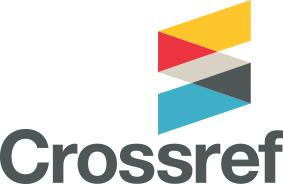Academic freedom "must remain high on the EU agenda"
Legal framework conditions at European level "are not sufficient to deal with infringements of academic freedom”, according to a speaker at a key public debate on the issue.
Send us a link
Legal framework conditions at European level "are not sufficient to deal with infringements of academic freedom”, according to a speaker at a key public debate on the issue.
New model aims to learn directly from peers in the Global South on how best to promote equitable collaboration and inclusion in scientific publishing.
The Arab region comprises 22 member states across the Gulf, North Africa, and Sub-Saharan Africa. Although economic circumstances, and available human, physical and digital capacities vary widely across these 22 states, the region as a whole has the resources and capability to play a pivotal role in the global transition towards more accessible, sustainable and inclusive research and education models.
Christian Grubak from ChronosHub and Josh Brown from MoreBrains share their thoughts on the transition to open access and the needs for its formalised management and collaborative community actions
Research Information spoke to four experts in the field about the ongoing move to open science, and the challenges that have emerged in an increasingly complex open-science ecosystem.
The move is intended to encourage greater endorsement of open science and ensure research findings are beneficial to all.
What can be done to preserve the monograph.
Open access looks set to shake up the humanities and social sciences book landscape for the better.
John Wiley and Sons has announced a partnership with Overleaf, a cloud-based, collaborative authoring tool.
From pilots to practice, more and more publishers are warming to open peer review.
Elsevier has announced the acquisition of Plum Analytics from EBSCO Information Services
From clarity to confusion, Rebecca Pool looks at the highs and lows of data sharing in scholarly publishing

Now that most major research funders require researchers to make their outputs available in open access (OA), new developments in the field are coming faster than ever.

Universities need to expand international engagement to remain competitive, according to a report by Digital Science.
A group of seven publishers has announced that they will begin requiring authors to use an ORCID identifier (iD) during the publication process.
ORCID has announced the launch of Auto-Update functionality, in collaboration with Crossref and DataCite.
Behind the headlines are exciting initiatives that have the potential to, not just improve peer review, but optimize it for 21st century scholarship.
Overview of some of the approaches that research funders take to open access and why.
Participants discuss the importance of finding a viable Open Access model for books, and of the funding that would be lost, particularly in the humanities and social sciences.
The Open Access Button is seeking £20,000 of funding for Version 2.0 of the tool, which is planned for launch in this October's Open Access Week.